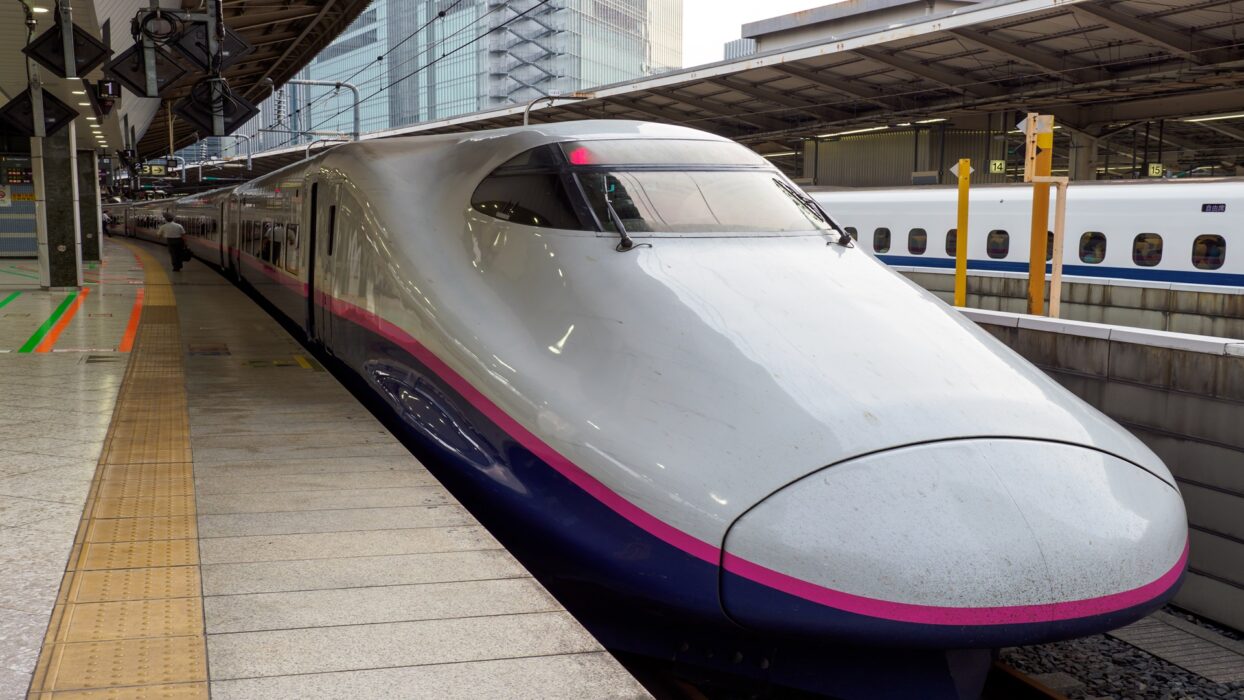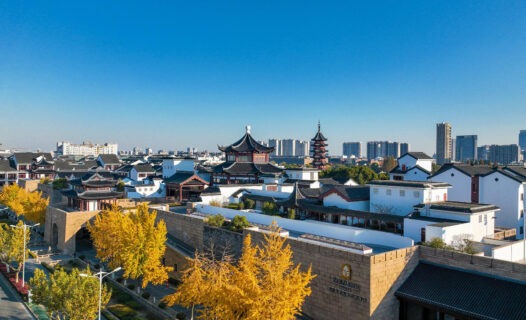Welcome to Tokyo’s Market Wonderland!
Tokyo is a city that never fails to amaze, and its market culture is a treasure trove of local flavors, unique crafts, and vibrant festivities. Exploring the best markets in Tokyo offers an exhilarating adventure filled with seasonal finds and cultural immersion. Whether you’re hunting for fresh sushi at a food market or searching for handcrafted souvenirs, Tokyo’s markets are the perfect place to experience the heart and soul of this incredible city.
Markets in Tokyo are more than just places to shop; they are lively hubs where you can engage with local vendors, taste authentic Japanese cuisine, and soak up the atmosphere of traditional festivals. Each market has its own charm and personality, making them must-visit spots for anyone wanting to dive into Tokyo’s rich local culture.
Discovering Tokyo’s Iconic Markets
First up on our market treasure hunt are the iconic markets that are synonymous with Tokyo. These bustling spots are not just shopping destinations; they are cultural landmarks that tell the story of the city.
Tsukiji Outer Market
Once home to the famous wholesale fish market, the Tsukiji Outer Market is now a seafood paradise where you can sample some of the freshest sushi and sashimi. Stroll through the maze of stalls, where vendors hawk everything from grilled seafood skewers to artisanal pickles. It’s a food lover’s dream come true!
Opening hours: 5:00 AM – 2:00 PM (closed on Sundays and holidays). Getting here is a breeze via the Tokyo Metro, making it a perfect stop for breakfast or an early lunch.
Ameyoko Market
Next, we venture to Ameyoko Market, a lively street market that stretches along the tracks between Ueno and Okachimachi stations. This bustling market is a feast for the senses, filled with colorful stalls selling everything from fresh produce to trendy clothing. Don’t miss out on the street food here—try the takoyaki (octopus balls) or sweet, fluffy taiyaki (fish-shaped cakes filled with red bean paste).
Opening hours: 10:00 AM – 8:00 PM (most shops). Ameyoko is easily accessible by train, making it a convenient stop during your Tokyo adventures.
Yanaka Ginza
For a more traditional vibe, head to Yanaka Ginza. This charming shopping street is lined with quaint shops and eateries, offering a glimpse into Tokyo’s past. It’s the perfect place to find handmade crafts, vintage goods, and local snacks. As you stroll through, take in the nostalgic atmosphere and perhaps stop for some delicious melon bread!
Opening hours: 10:00 AM – 6:00 PM (varies by shop). Yanaka is a short walk from Nippori Station, making it a lovely afternoon excursion.
Hidden Gems: Exploring Tokyo’s Lesser-Known Markets
While the iconic markets are a must-visit, Tokyo is also home to a plethora of hidden gems waiting to be discovered. These neighborhood markets offer a more intimate shopping experience, allowing you to connect with locals and unearth unique finds.
Kichijoji
Start your adventure in Kichijoji, a trendy neighborhood known for its quirky shops and vibrant market scene. The Kichijoji Market is a delightful mix of food stalls and artisanal shops. Keep an eye out for local crafts and gourmet treats—perfect for picking up a unique souvenir!
Opening hours: Varies by vendor, but many shops open around 10:00 AM. Kichijoji is easily accessible via the JR Chuo Line.
Shimokitazawa
Next, we head to Shimokitazawa, a bohemian neighborhood famous for its vintage shops and laid-back vibe. The local market here is a treasure chest of second-hand clothes, unique trinkets, and indie crafts. It’s a fantastic place to hunt for one-of-a-kind fashion pieces or quirky home decor. Plus, the coffee shops in the area are perfect for a cozy break.
Opening hours: Most shops open around 11:00 AM and close by 7:00 PM. Shimokitazawa is just a short train ride from Shibuya, making it a fun detour.
With so many markets to explore, each offering its own unique experiences, you’re sure to find something special in Tokyo’s market scene. From the iconic to the hidden gems, the city’s markets are a gateway to its rich culture and culinary delights.
A Seasonal Calendar of Festivals and Events
Tokyo’s markets come alive with a multitude of seasonal festivals throughout the year, each offering a unique blend of culture, food, and fun! Whether you’re a local or a traveler, these events are fantastic opportunities to immerse yourself in the city’s vibrant traditions.
Spring: Cherry Blossom Festivals
As the cherry blossoms bloom, markets like Ueno Park and Shinjuku Gyoen host hanami (flower viewing) festivals. You can find food stalls selling sakura-themed treats like sakura mochi (rice cakes) and matcha (green tea) sweets. The atmosphere is festive, with live performances and picnics under the blooming trees. Don’t miss the Ueno Cherry Blossom Festival, typically held in late March to early April!
Summer: Matsuri and Food Fests
Summer brings a wave of lively festivals, or matsuri, celebrated across Tokyo. The famous Sanja Matsuri in Asakusa features traditional parades and food stalls galore. Check out the stalls for yakitori (grilled chicken skewers), kakigori (shaved ice), and other summer delights! This festival usually occurs in mid-May and is a must-see for its vibrant atmosphere and cultural significance.
Autumn: Harvest Festivals
As the leaves change color, Tokyo’s markets host harvest festivals celebrating seasonal produce. The Kichijoji Market becomes a hub for autumn flavors, showcasing local ingredients like sweet potatoes and chestnuts. Enjoy seasonal dishes like kuri gohan (chestnut rice) and pumpkin tempura. The festivities typically kick off in late September and run through October.
Winter: New Year Celebrations
Winter in Tokyo is magical, especially during the New Year celebrations. Visit the famous Tsukiji Outer Market for osechi ryori (traditional New Year’s food) and mochi (rice cakes). The market buzzes with locals preparing for the festivities. New Year’s celebrations usually begin on January 1st and last for several days, making it a great time to experience the local culture.
Culinary Adventures: Food Markets and Street Eats
Food lovers rejoice! Tokyo’s markets are a paradise for those eager to sample authentic Japanese cuisine. From fresh sushi to sizzling street food, there’s something for every palate.
Tsukiji Outer Market
While you may have visited the Tsukiji Outer Market for sushi, it’s worth diving deeper into its culinary offerings. Try the grilled seafood skewers, and don’t miss the chance to taste fresh uni (sea urchin) right from the vendor! There are also plenty of shops selling delicious snacks like onigiri (rice balls) and tamagoyaki (Japanese omelet).
Ameyoko Market
At Ameyoko, street food is king! Grab a bite of the famous takoyaki or indulge in some sweet, fluffy taiyaki filled with red bean paste. The market is a sensory overload with colorful stalls and the sizzling sounds of food being cooked right in front of you. It’s the perfect spot for a casual lunch or an afternoon snack!
Shibuya Food Scene
Don’t overlook the food stalls around Shibuya as well! Try the local specialty, shibuya toast, a thick slice of bread topped with a variety of ingredients, from sweet to savory. Pair it with a refreshing matcha latte from one of the nearby cafes, and you have a delightful meal that’s Instagram-worthy!
Vendor Recommendations
For a true culinary adventure, seek out local vendors. Ask for recommendations from shop owners—they often have hidden gems that aren’t listed in guidebooks. Plus, you’ll get a chance to practice your Japanese!
Craftsmanship and Artisans: The Heart of Tokyo’s Markets
Tokyo’s markets are not just about food; they are also treasure troves of unique handmade crafts and local artistry. Exploring these artisan markets offers a glimpse into the creativity and craftsmanship that define Japanese culture.
Nakano Broadway
For a quirky shopping experience, head to Nakano Broadway. This shopping complex is filled with shops selling vintage collectibles, anime merchandise, and unique handmade crafts. It’s a haven for pop culture enthusiasts and those looking for one-of-a-kind items. Don’t forget to check out the local artisans showcasing their crafts!
Takeshita Street in Harajuku
The Takeshita Street market is famous for its youthful fashion and creative designs. Here, you’ll find everything from quirky clothing to handmade accessories. Engage with local artists and support their work by purchasing unique pieces that reflect Tokyo’s vibrant street culture.
Supporting Local Artisans
When you buy from local artisans, you’re not just getting a souvenir; you’re supporting their craft and the local economy. Many artisans are happy to share their stories, so don’t hesitate to ask about their work!
Vintage Treasures: Flea Markets and Bargain Hunting
For those who love a good bargain, Tokyo’s flea markets are a must-visit! These markets are perfect for hunting down vintage treasures and unique finds at unbeatable prices.
Ohi Racecourse Flea Market
The Ohi Racecourse Flea Market is one of Tokyo’s largest and most popular flea markets, held on weekends. Here, you can find everything from vintage clothing to antiques and handmade crafts. Arrive early for the best selection and don’t be afraid to haggle for a better price!
Shinjuku Chuo Park Flea Market
Another gem is the Shinjuku Chuo Park Flea Market, held monthly. This market features a mix of vintage goods and artisanal crafts, all set against the backdrop of the beautiful park. It’s a great spot to relax while browsing through unique items.
Tips for Bargain Hunting
When hunting for vintage treasures, keep an open mind. You never know what you might find! Don’t hesitate to negotiate with vendors; it’s part of the fun! Plus, many vendors are willing to offer discounts for bulk purchases.
Day-by-Day Itinerary for Market Explorers
Ready to explore Tokyo’s markets? Here’s a suggested week-long itinerary that combines iconic spots, hidden gems, and seasonal highlights!
Day 1: Tsukiji Outer Market & Ginza
Start your adventure at the Tsukiji Outer Market for breakfast. Sample fresh sushi and grab some snacks for later. Afterward, stroll to Ginza for upscale shopping and art galleries.
Day 2: Ameyoko Market & Ueno Park
Spend your second day at Ameyoko Market for lunch and street food delights. Afterward, explore Ueno Park and enjoy the cherry blossoms if you’re visiting in spring.
Day 3: Yanaka Ginza & Asakusa
Head to Yanaka Ginza for a leisurely morning of browsing quaint shops. Later, visit Asakusa to experience the Sanja Matsuri festival if it coincides with your visit.
Day 4: Kichijoji & Inokashira Park
Explore the trendy neighborhood of Kichijoji and its market. Spend the afternoon in Inokashira Park, where you can rent a paddle boat and enjoy the scenery.
Day 5: Shimokitazawa & Harajuku
Visit Shimokitazawa for vintage shopping and a laid-back atmosphere. Later, head to Takeshita Street in Harajuku for more unique finds and street food.
Day 6: Ohi Racecourse Flea Market
Spend your Saturday morning at the Ohi Racecourse Flea Market. Enjoy hunting for treasures, then relax at a nearby café.
Day 7: Shinjuku & Final Shopping
Wrap up your week in Shinjuku, exploring local shops and enjoying a final round of street food before heading home!
Fun Facts About Tokyo’s Market Culture
Did you know that Tokyo has over 100 markets? Each market has its unique history and offerings, making them a fascinating aspect of the city’s culture. Here are some fun facts:
- Tsukiji Market was originally established in 1935 and has been a staple for seafood lovers ever since.
- Many markets in Tokyo have been around for centuries, with some dating back to the Edo period!
- Street food in Tokyo is not just delicious; it’s often made with seasonal ingredients, showcasing the best of Japanese cuisine.
Practical Information for Travelers
Visiting Tokyo’s markets is an exciting experience, but a little planning can go a long way. Here are some tips to make the most of your market adventures:
Opening Hours
Most markets operate from morning until early evening, but hours can vary by vendor. It’s best to check in advance to avoid disappointment.
Payment Methods
While many vendors accept cash, some may also accept credit cards. It’s a good idea to carry some yen for small purchases, especially at street stalls.
Etiquette Tips
When visiting markets, be respectful of the vendors and their space. Always ask before taking photos, and don’t hesitate to engage in conversation—locals love sharing their stories!
Sustainability and Local Finds: Supporting Eco-Friendly Practices
As you explore Tokyo’s markets, consider supporting eco-friendly vendors who prioritize sustainability. Many artisans use recycled materials or traditional techniques that reduce waste.
Choosing Eco-Friendly Products
Look for products labeled as sustainable or handmade. Supporting these vendors not only helps the environment but also promotes local craftsmanship.
Responsible Shopping
When shopping, think about the impact of your purchases. Opt for items that are not only beautiful but also support local communities and preserve traditional crafts.
Transportation Tips: Getting Around Tokyo’s Markets
Tokyo’s public transportation system is efficient and easy to navigate, making it simple to reach various markets across the city.
Using the Subway
The Tokyo Metro and Toei Subway are your best friends when exploring the markets. Many stations are within walking distance of popular market areas. A prepaid Suica or Pasmo card can make travel even easier!
Bus Services
Tokyo’s bus network is extensive, too! If you prefer a scenic route, consider taking a bus to your destination. Just be sure to check the schedule, as buses may run less frequently than trains.
Seasonal Travel Insights: Best Times to Visit Tokyo Markets
While Tokyo’s markets are open year-round, certain seasons offer a unique charm and special events that enhance your experience.
Spring and Cherry Blossoms
Spring is arguably the best time to visit, with cherry blossoms in full bloom and markets buzzing with seasonal treats. It’s a picturesque time for outdoor picnics!
Summer Matsuri
Summer offers vibrant festivals, where you can experience the lively atmosphere and delicious street food. Be prepared for hot weather, and stay hydrated!
Autumn Harvests
Autumn is a feast for the senses, with seasonal flavors and beautiful fall foliage. It’s the perfect time to enjoy warm dishes and harvest festivals.
Winter Celebrations
Winter brings a magical ambiance, especially during New Year’s celebrations. Experience traditional festivities and warm up with hearty winter dishes!
Safety and Health Guidelines for Market Visitors
While exploring the bustling markets, keeping safety and health in mind is essential, especially in crowded areas.
Stay Aware
Be mindful of your belongings and be aware of your surroundings. Pickpocketing can happen in crowded areas, so keep your valuables secure.
Health Precautions
With the ongoing health considerations, wearing a mask and using hand sanitizer when sampling food is a good practice. Many vendors will have safety measures in place, so don’t hesitate to ask if you have concerns.
Commonly Asked Questions (FAQs)
Have questions about Tokyo’s markets? Here are some frequently asked questions to help you out!
What is the best market in Tokyo for food?
The Tsukiji Outer Market is a top choice for fresh seafood and delicious street food. It’s a must-visit for any food lover!
Are there any markets open on Sundays?
Yes! Many markets are open on Sundays, including Ameyoko Market. However, some vendors may have different hours, so it’s best to check in advance.
How do I get to the markets?
Most markets are easily accessible via public transportation. Using a Suica or Pasmo card will make your travels seamless!
Conclusion
Exploring Tokyo’s markets is an adventure filled with cultural treasures, delicious food, and unique finds. From the iconic Tsukiji Outer Market to the hidden gems of Shimokitazawa, each market offers a glimpse into the heart of Tokyo. So grab your shopping bags, indulge in local delicacies, and immerse yourself in the vibrant culture that makes this city truly special. Happy market hunting!



















